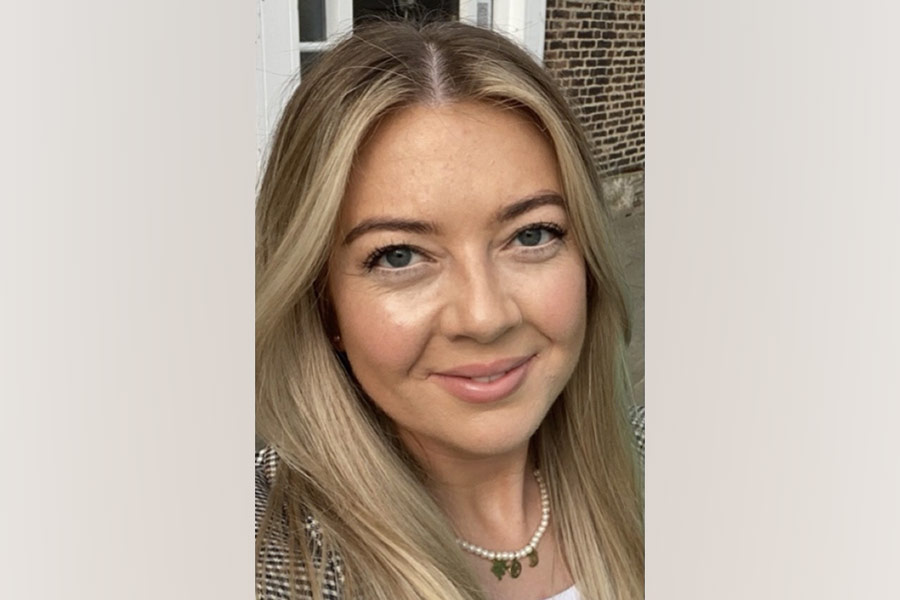Get to know Sophie Bell, Microbiology Analyst at Calysta
How did you get started in the industry? What did you study and what was your first job?
I decided to study biomedical science at university as I believed that by studying the biology behind human disease, I could help people and make a difference in their lives. I realised I had a particular interest in genetics and microbiology, and after deciding that I didn’t want to be cooped up in a hospital laboratory, my first job was as a Study Management Analyst at a pharmaceutical company.
I gained such great experience in this role, which put me on a good track right at the start of my career. Here, I learned the fundamentals of Good Laboratory Practice and Good Manufacturing Practice as well as completing a Lean Six Sigma course, a method that uses team effort to improve performance and business processes and became Yellow Belt Certified (no, not a karate prodigy). This gave me a deep understanding of the importance of a well-organised working environment in terms of lean manufacturing.
What drew you to work at Calysta?
In a previous role I found myself thinking that although I enjoyed being in a laboratory environment, it tended to be the same work, day-in, day-out. I just had this gut feeling that there was something better out there for me. When I came across Calysta, I felt that real excitement again – I could be a part of a growing industry, something that will make a real difference in the world.
Can you describe a typical day-in-the life of a Microbiology Analyst at Calysta?
This honestly varies day-to-day (which I love), but typically, if there is a fermentation run in progress, you can find me analysing samples, and reading agar plates fresh out of the incubator. You’ll probably also find me in the laboratory gram-staining and peering at microbes down a microscope.
When the fermenters aren’t running, I’m usually working on my personal projects which currently involve things like implementing the lab cleaning programme and validating our test methods. At Calysta I also get to produce cell banks which I really enjoy doing, so I might be gowned up in the cell banking lab.
What I really like about my job is that it’s a perfect mix of practical hands-on lab time and computer work. I also like how I get to work closely with both the fermentation team and the analytical team as there is always something to learn from them. Everyone at Calysta brings their own knowledge and experiences together which makes it such a unique and exciting environment to work in.
What most excites you about Calysta’s technology?
That nobody else is yet to do what we do at such a large scale. That’s exciting to me as I really feel we are at the forefront of something big. I think it’s hugely significant that Calysta’s technology is sustainable for the environment whilst also producing an alternative protein that is so incredibly useful for the future of food.
What projects or decisions are you most proud of at Calysta?
I am proud of implementing 5S, an audit checklist used to create an efficient working environment, in the Calysta laboratories and presenting this to everyone as being an important tool. I was so pleased to see everyone taking this on board and transforming their laboratories for the better and making their space a much nicer working environment.
I am also super proud to be working on the cell banks for Calysseo, which is pretty cool.
Do you have any advice for someone aspiring to be a Microbiology Analyst?
First, gaining the qualification of an undergraduate degree in a scientific field relating to microbiology is essential. Then, just go for it. You need to have passion for the subject, be willing to take new opportunities, and don’t be afraid to make mistakes along the way.
Where do you hope to see microbiology in the next 5 years?
I hope to see it still being as incredibly important as it is today. I believe an important part of bacterial identification will be based more on molecular methods – I am lucky to have a colleague with deep knowledge in this area and have learned so much from them. I predict microbiologists having to pick up this molecular biology knowledge as an essential skill in the near future.
Do you see more people studying microbiology in the food technology sector in the future?
For sure. Anything relating to food for human consumption will always have very strict testing criteria. As we pave the way in the world with our sustainable protein, more companies will be sure to follow, and they will need plenty of microbiology expertise there.
What do you enjoy doing in your spare time to unwind?
I enjoy hiking, camping, dance music festivals and skiing. To unwind I truly believe in the power of yoga and meditation to calm the mind.

